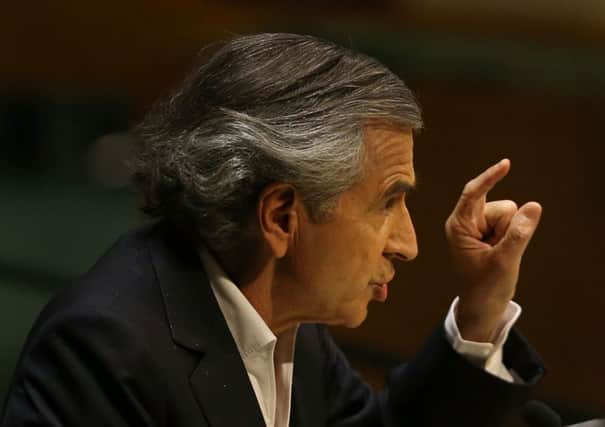Leaders: Dark consequences | Potholes


There is the initial shock that such outrages could occur: the planned, systematic slayings of the editor and staff in the attack on the satirical Charlie Hebdo, followed by the killing of a French national police officer, followed in turn by the slaughter of four people at the Hyper Cacher kosher supermarket: massacres that shocked the world.
FOLLOW US
-----------------------------------------
-----------------------------------------
SCOTSMAN TABLET AND MOBILE APPS
Now, after the initial grief, comes a darker consequence: a growing apprehension and fear across Jewish communities over antisemitic incidents. It is as if the appalling attacks left a double legacy: a mass recoil among millions against such horrific acts of Islamic terrorism, and at the same time a macabre encouragement of vile and obnoxious hate crime.
Advertisement
Hide AdAdvertisement
Hide AdHave these attacks brought to a head a boil of hateful attitude and opinion?
Jewish organisations speak of a feeling of “anxiety” among their communities in the UK following the shootings in Paris, while a Jewish security charity said it has received an “unusually high” number of calls. Last week the number of calls received were described as “unprecedented”. Scotland Yard assistant commissioner Mark Rowley, the national policing lead for counter-terrorism, has spoken of a “heightened concern” about the risk to the Jewish population in the UK since the attacks, and said a security review would be carried out.
Mark Gardner, a spokesman at Community Security Trust, spoke of a “significant increase in the number of antisemitic race hate” incidents when there is a conflict in the Middle East.
It seems barely credible that such incidents should proliferate, given the black legacy of the murder of millions of Jews in the Holocaust. Tomorrow marks Holocaust Memorial Day – and the 70th anniversary of the liberation of Auschwitz-Birkenau where more than a million were killed. The images of the Nazi death camps would seem to have been seared into human consciousness in perpetuity. But still the incidents of antisemitism continue – and the fear among Jewish communities after terrorist attacks has risen notably. Last week saw anti-Jewish slogans appearing in the London area.
Karen Pollock, chief executive of the Holocaust Educational Trust, reminds us that the threat of antisemitism is not new but the slayings in the French capital had led to a heightened awareness of vulnerability.
“I think it’s up to all of us as a country,” she said, “not just the Jewish community, to be vigilant, and also to recognise – something we always talk about at the Holocaust Educational Trust – it’s about language, it’s about behaviour, and noticing those warning signs and not letting things get out of control.”
These are wise words, and they deserve to be widely noted.
When you’re in a hole, stop digging
Potholes are seldom top of the agenda in political debate. But that is just the problem, and explains their damaging and costly persistence. It is the reluctance on the part of local councils to prioritise that lies behind the staggering figures on claims and costs.
More than 4,500 drivers made claims against Scottish councils for damage caused to their vehicles by potholes in the last financial year, with compensation claims coming to £228,000 – compared with just £20,000 paid out in 2007-8.
Advertisement
Hide AdAdvertisement
Hide AdCynics might argue that this is a small sum in comparison with the cost of fixing potholes. But the damage inflicted on cars is almost certainly far greater. As many drivers are reluctant to commit the time, paperwork and hassle of lodging a claim, Professor Stephen Glaister, director of the RAC Foundation, is surely right in his summation that the figures are “likely to be the tip of the iceberg”.
Road maintenance is a basic responsibility of local government but complaints are rife.
They contribute to the negative image that many voters have of local government. And they require to be fixed, if not on grounds of claims costs then on the danger they pose to road users – not only motorists but also cyclists.
One reason for their incidence may be the continual digging up of roads by utility companies and inadequate infill. A stricter inspection regime by councils to ensure repairs are carried out to a high standard would help address the problem with minimal outlay. But nothing should take away from the urgent need for local authorities to take action over this growing – and costly – curse.